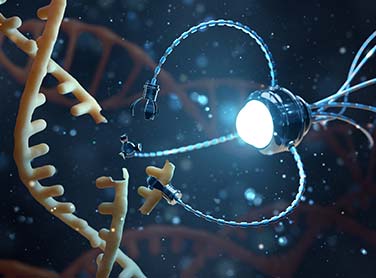
Dec 13, 2024
Blog Life Sciences How AI is Transforming the Fight Against Cancer
Artificial Intelligence (AI) is when machines can do tasks that usually require human intelligence, like learning and solving problems. AI uses special programs called algorithms to analyze data and make predictions or create new things. It can find patterns in large amounts of data that humans might miss.
According to BCC Research the demand for Artificial Intelligence (AI) in Cancer is increase from $2.2 billion in 2024 to reach $6.3 billion by 2029, at a compound annual growth rate (CAGR) of 23.1% from 2024 through 2029.

The global market for artificial intelligence (AI) in cancer is estimated to increase from $2.2 billion in 2024 to reach $6.3 billion by 2029, at a compound annual growth rate (CAGR) of 23.1% from 2024 through 2029.
AI has been used in healthcare since the 1970s, evolving over time with new advancements. The latest type, generative AI (Gen AI), is gaining attention for its ability to handle large data and create original content like reports, clinical notes, and realistic fake data for learning or testing.
AI offers many benefits in healthcare. Here are five keyways it helps with cancer detection and treatment:
The future of AI in cancer involves better diagnosis, personalized treatments, and quicker, more accurate results. AI will help doctors make smarter decisions, improve patient care, and find new ways to treat cancer more effectively.
AI has the potential to revolutionize cancer care by improving early detection, personalizing treatments, and enhancing overall patient outcomes. As technology advances, AI will play a key role in making cancer treatment more precise, efficient, and accessible, bringing us closer to better management and potentially more cures for the disease.
Consider becoming a member of the BCC Research library and gain access to our full catalog of market research reports in your industry. Not seeing what you are looking for? We offer custom solutions too, including our new product line: Custom Intelligence Services.
Contact us today to find out more.

Divya Dhamija is a Senior Executive of Marketing Operations at BCC Research, with a master’s degree in business. She specializes in optimizing marketing strategies and content creation and is dedicated to driving organizational growth through strategic marketing initiatives.
In today’s fast-paced biomedical world, researchers and pharmaceutical companies...

Radiopharmaceuticals represent a cutting-edge frontier in modern medicine, offer...

Implantable Remote Patient Monitoring (IRPM) devices are revolutionizing healthc...

We are your trusted research partner, providing actionable insights and custom consulting across life sciences, advanced materials, and technology. Allow BCC Research to nurture your smartest business decisions today, tomorrow, and beyond.
Contact UsBCC Research provides objective, unbiased measurement and assessment of market opportunities with detailed market research reports. Our experienced industry analysts assess growth opportunities, market sizing, technologies, applications, supply chains and companies with the singular goal of helping you make informed business decisions, free of noise and hype.